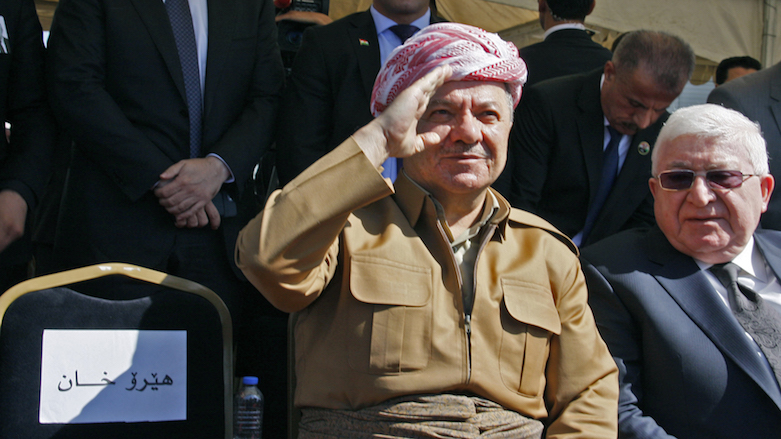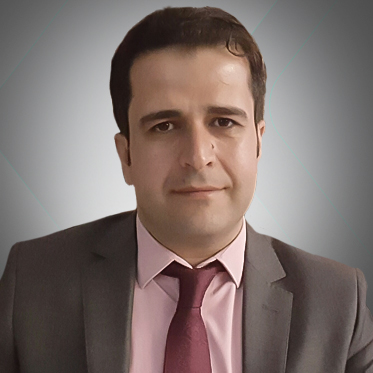Who are Kurdistan’s negotiating partners in polarized Baghdad?

LONDON, United Kingdom (Kurdistan 24) – Since the Kurdistan Region’s historic independence referendum, Baghdad has embarked on several punitive measures, whereas the Kurdistan leadership has continuously insisted on dialogue. While some sides in Baghdad have tried to de-escalate tensions, the ultimate question remains: Who are Kurdistan’s negotiating partners in a polarized Baghdad?
The political framework of Iraq is marred in differences not just between Sunnis and Shias but also between various Shia factions.
The political picture is complicated further with great influence of sectarian figures such as Grand Ayatollah Ali al-Sistani, a revered and spiritual leader among the Shias.
The splintering of the Iraqi mosaic is also reflected in the makeup of the security forces where the Shia militia Hashd al-Shaabi, itself an umbrella of several Iranian-backed militia groups, holds significant sway.
The official reaction from Baghdad toward the referendum may seem harsh and uncompromising, but many Iraqi sides have taken a much more conciliatory and pragmatic stance on the standoff between Kurdistan and Baghdad.
More importantly, the Baghdad government does not represent the complete political or social eco-cycle of Iraq and thus, the punitive measures the Kurdistan Regional Government (KRG) has labeled as “collective punishment” of the people is not a reflection of the overall Arab sentiment.
This was illustrated in the positive and reconciliatory statements produced after Kurdistan Region President Masoud Barzani met two Iraqi Vice Presidents, Ayad Allawi and Osama al-Nujaifi, in Sulaimani last week.
The outcome was an agreement on four points to de-escalate tensions, including stressing the necessity to pursue dialogue and holding meetings with an open agenda, and, importantly, on the need to lift all sanctions against the Region.
Another positive and encouraging meeting quickly followed the meeting with Allawi and Nujaifi as President Barzani sat with Iraqi Parliament Speaker Salim al-Jabouri.
According to a Kurdistan Region Presidency statement, “The two sides stressed the importance of resolving the issues between Erbil and Baghdad through negotiations. They agreed that the negotiations must be conducted on the basis of an open agenda and the participation in those negotiations must be broad so to ensure that all the concerned parties are part of the dialogue.”
In the meeting, President Barzani reiterated the referendum results would not be canceled as “it is the verdict of the people, and no person or party can take that decision.”
Meanwhile, Jabouri stated after the meeting, “Following the referendum on Sep. 25, the regional countries have become part of the tension [between Erbil and Baghdad] which has posed a threat to the security and stability of Iraq.”
Jabouri emphasized his visit was to help rebuild the strained relations between Erbil and Baghdad that have reached a “dangerous” level and stressed on discussion with all sides “to come up with a vision that best serves the interests of Iraq and heals the country’s problems.”
However, Baghdad responded to these meetings by quickly extinguishing any positive momentum toward de-escalation of tensions and the path to dialogue, and announced further measures against Kurdistan.
Saadi al-Hadithi, the spokesperson of the Iraqi Prime Minister, stated the outcome of the meeting with Allawi and Nujaifi, including the lifting of blockades against Erbil, was not binding and “does not necessarily reflect the position of the Iraqi government.”
Hadithi insisted Baghdad’s position was well reflected in the decisions passed by the office of the Prime Minister, the Iraqi Supreme Court, and the Iraqi Parliament.
Hamam Hamoudi, Deputy Speaker of the Iraqi Parliament, later slammed Jabouri’s visit to Erbil deeming it “personal” and without the full backing of the parliament presidency.
Hardliners in the Iraqi government such as Nouri al-Maliki, the head of the ruling Shia State of Law Coalition, continued to insist the referendum must be canceled before any talks.
Kurdistan Prime Minister Nechirvan Barzani stressed that the disagreements between Erbil and Baghdad should be seen as an Iraqi question. “The best solution is not turning to other countries to resolve the issues of Iraq,” Barzani urged.
More pragmatic and diplomatic voices in Baghdad are in stark contrast to the drums of war beaten by some sides.
Qais al-Khazali, leader of Asaib Ahl al-Haq, an Iranian-backed Shia militia in Iraq, insisted they were ready “to fight for Kirkuk, Shingal, and the Nineveh Plains.”
The current standoff with Kurdistan highlights how fractured Baghdad and Iraq remains. Supporters of Influential Shia cleric Moqtada al-Sadr threatened to storm the Iraqi Parliament “again” if the term of the elections commission was extended.
Sadr has previously launched several popular rallies against corruption that shook Baghdad and resulted in a tense confrontation with security.
As much as Kurdistan has Iraqi partners willing to resort to the negotiating table and embark on a win-win solution, Iraqi Shia lawmakers hold a majority of seats and any proposed motions are in danger of being rejected by antagonistic voices.
Editing by Karzan Sulaivany
